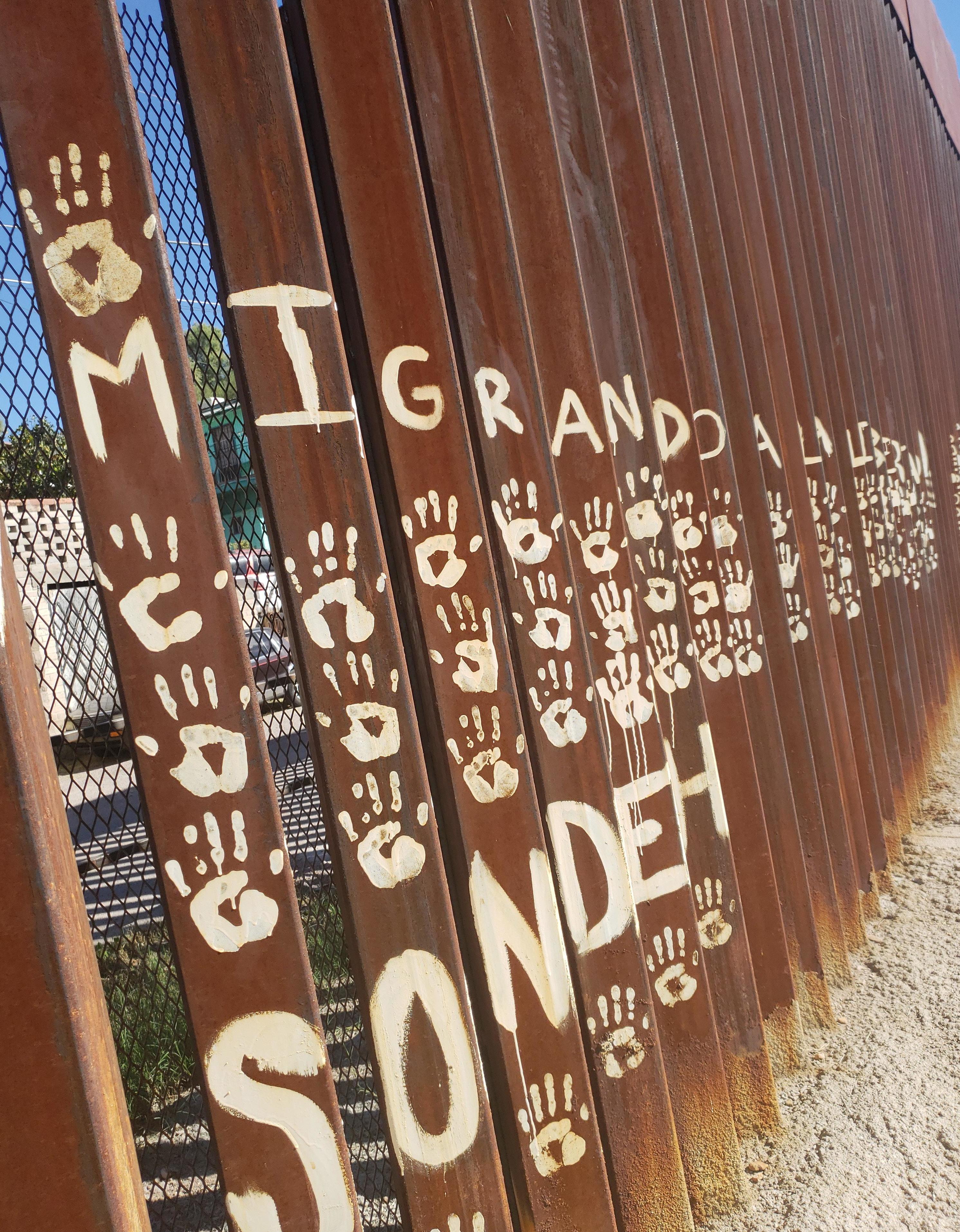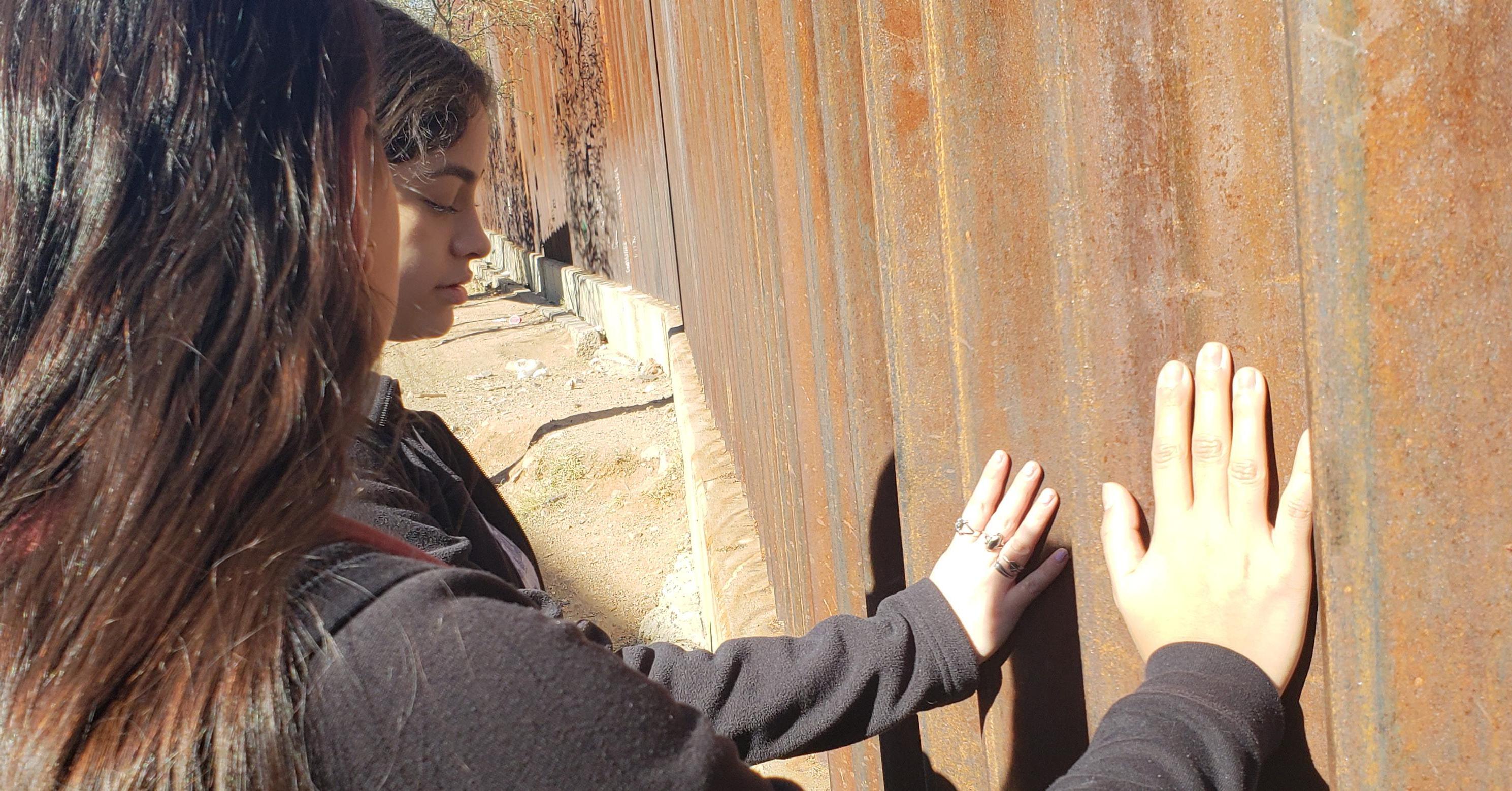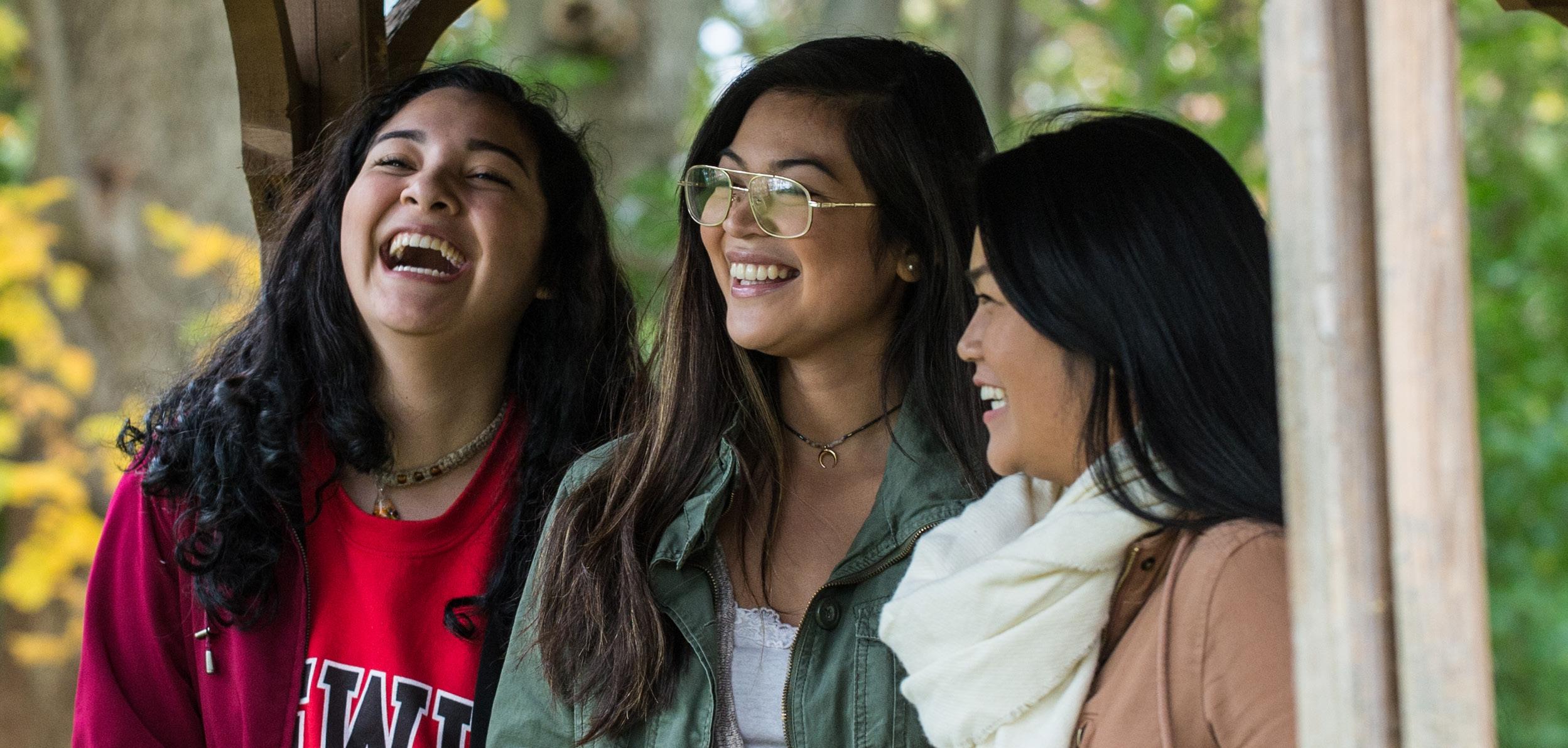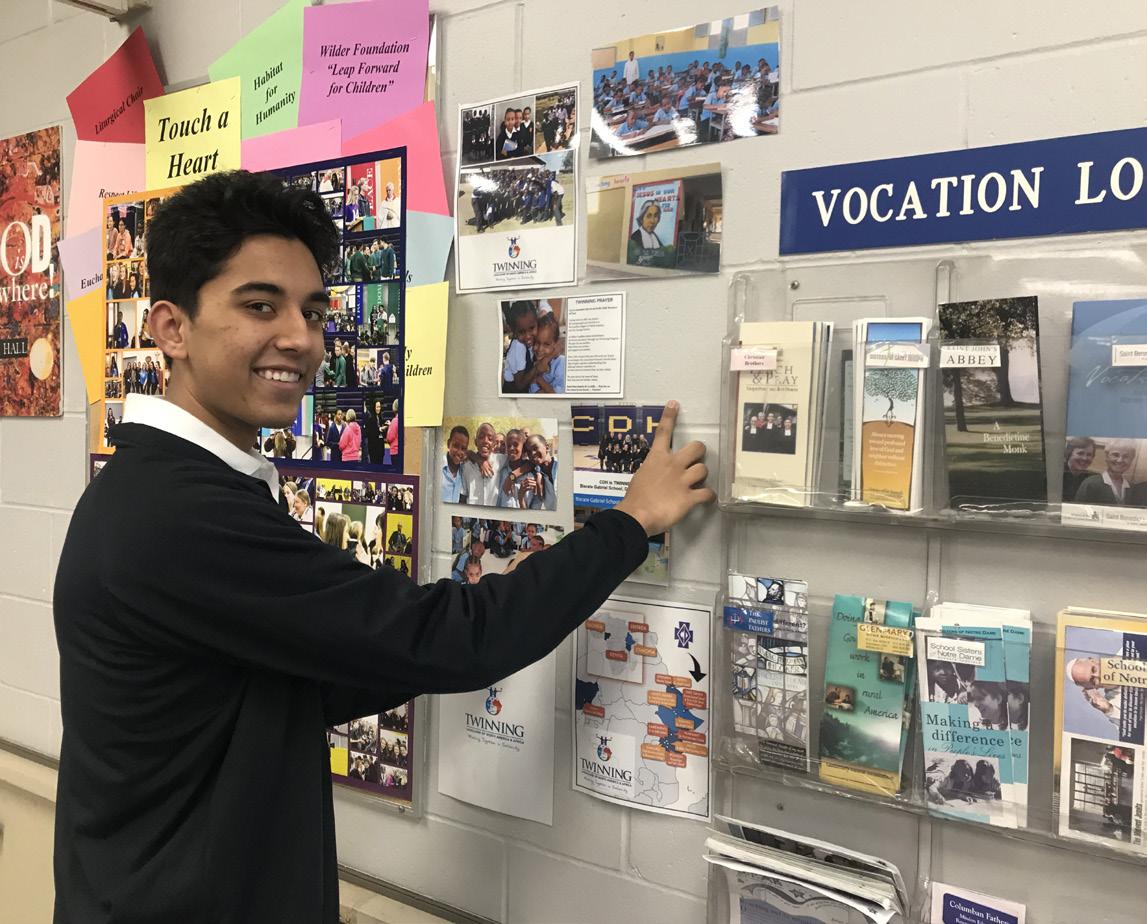
9 minute read
25 Years of Twinning: Building Relationships Between Students in RELAN and Lwanga
BY ELIZABETH MOORS JODICE
What’s your favorite subject?” “Do you play any sports?” “What do you want to be when you grow up?” These are the types of questions students ask when the borders of distance and culture are removed. Simple questions. Conversation starters. Relationship builders.
Advertisement
The twinning program between 66 middle and secondary schools in the Lasallian Region of North America (RELAN) and 14 ministries in the Lwanga District of Africa in the Lasallian Region of AfricaMadagascar (RELAF) breaks down these borders and helps young people form relationships as brothers and sisters in the Lasallian family. The program helps students make connections with young people in different cultures, while the schools in RELAN raise money for their twinned ministries in Kenya, Eritrea, Ethiopia and Nigeria. The fundraising supports those ministries on the road to self-sufficiency.
A LONG HISTORY
In 2020, the school-to-school twinning program will officially celebrate 25 years. While the concept of twinning was present before the program’s official launch, the relationship between schools in the then-United States-Toronto Region and the ministries in Africa was formalized with the Lenten season in 1995 in response to a call from the Institute of the Brothers of the Christian Schools to support young and emerging Districts.*
A letter from Brother Dominic Ehrmantraut, FSC, then-Regional Coordinator (and first Visitor of the Lwanga District, 1997-2006), to the directors of education and mission coordinators in the Region formalized the twinning program: “The 1995 Twinning program represents the first time the USA & Toronto Region enters into such an arrangement. Individual Districts over the years have been very much involved in twinning and very successfully so. It is my hope that the Regional twinning program meets with enthusiasm and commitment in the Districts and apostolates throughout the United States and Toronto, Canada.”
Nearly 25 years later, Brother Dominic reflected on his hopes at the start of the program, sharing, “I was hoping that they would establish a relationship with one another. That took time, of course. They began communicating, usually writing postcards. As time went on, with technology and visits, the relationships have really grown. Right now, students on both sides feel connected to their twinned ministries.”
REALITIES IN LWANGA
The type of African ministries that participate in twinning include traditional schools, vocational training centers, and centers that serve homeless and at-risk youth by providing housing and education. Students in Lwanga face many challenges; many come from very financially poor families and cannot afford education. Some are orphans who lived on the streets before being welcomed into a Lasallian ministry. They often do not have access to basic needs, such as water, food, electricity, adequate housing and health care. Lasallian schools in the Lwanga District meet these needs, as well as give young people hope, prepare them to face challenges, and shape them professionally and morally to contribute to society.
“Lasallian education helps to keep me focused and determined for my future endeavors,” said Samuel Kariuki Maina, a student at Rongai Agricultural and Technical Secondary School in Rongai, Kenya. “It helps a learner to be hardworking, engage God in each and every activity, and emphasizes unity.”

Ethan Thompson, president of the Twinning Club at Cretin-Derham Hall in St. Paul, Minnesota, places materials for a display about Bisrate Gabriel School in Dire Dawa, Ethiopia.
Courtesy Cretin-Derham Hall
MAKING CONNECTIONS
Students in RELAN learn about their brothers and sisters in Lwanga through a variety of resources provided by Christian Brothers Conference, in addition to their own interactions with students and staff in their twinned ministry. Supported by their Districts, each RELAN school has a twinning coordinator who champions the relationship by providing educational opportunities, facilitating efforts to connect, and helping to coordinate student efforts and fundraisers. Much communication between ministries in RELAN and Lwanga takes place over email or video conferencing, as available.
Cretin-Derham Hall (CDH) in St. Paul, Minnesota, started a Twinning Club in the 2018-2019 school year as a way to build a connection with Bisrate Gabriel School in Dire Dawa, Ethiopia. In its first year, club members led the twinning prayer as part of announcements, spoke to religion classes, created displays, provided an Ethiopian dish for sampling, and organized fundraisers.
“The twinning program at CDH has given me an incredible opportunity to give back to other children my age and adults in Ethiopia,” said Twinning Club President Ethan Thompson ’20. “It was inspiring to see our committee start very small and grow into a schoolwide goal to raise money for Bisrate Gabriel School.”
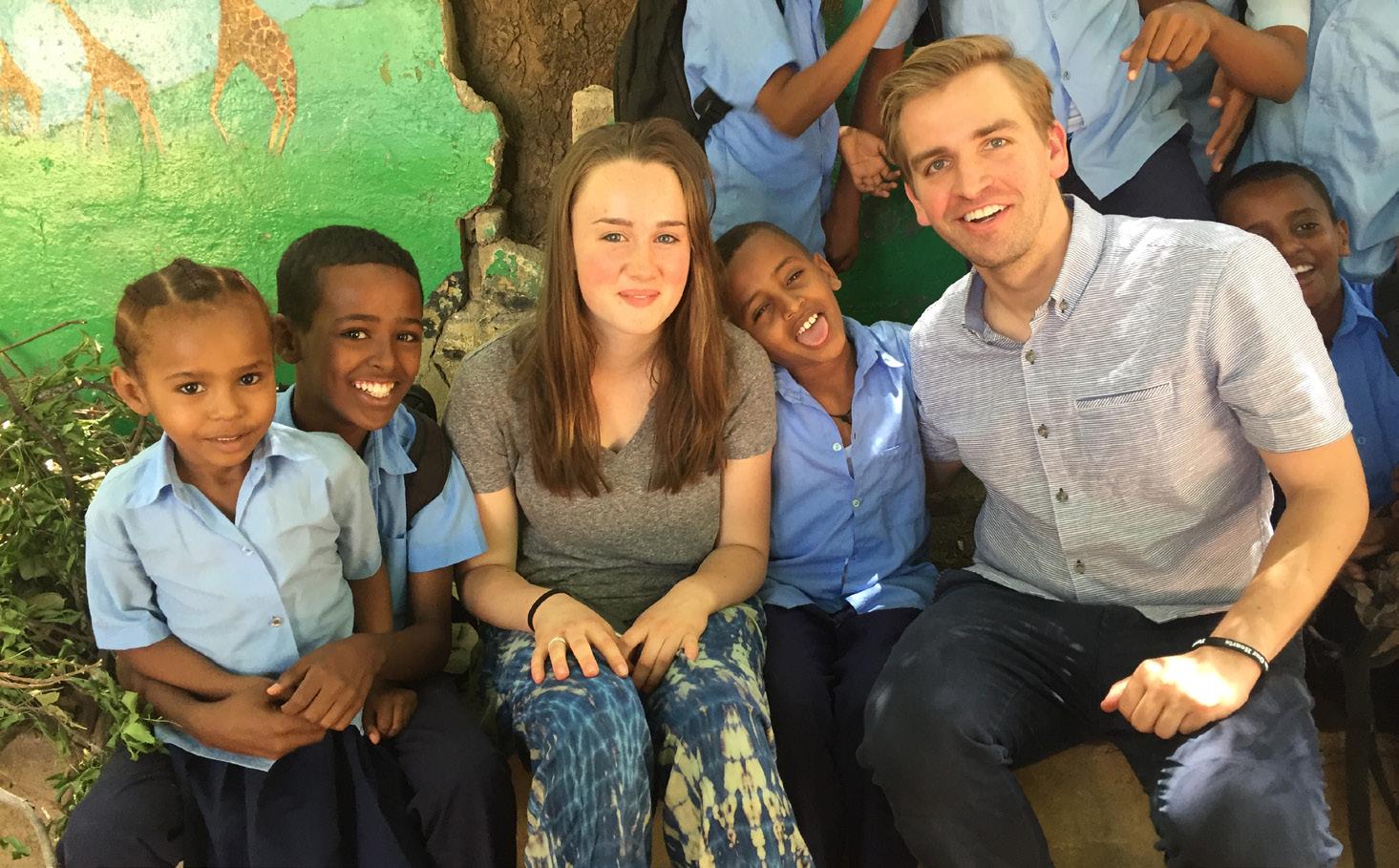
Mullen High School in Denver, Colorado, hosted its first twinning visit in 2018.
Courtesy Mullen High School
MEETING FACE-TO-FACE
Over the years, a number of schools have visited their twinned ministries in Lwanga and more trips are being planned. In 2018, Mullen High School in Denver, Colorado, hosted its first trip to Ethiopia. Fourteen students and two faculty members visited St. John Baptist de La Salle Catholic School in Addis Ababa, Mullen’s twinned school, and Bisrate Gabriel School. The students attended classes, taught songs, played sports, and bonded with the students. Mullen plans to return to Ethiopia in 2020.
“A powerful benefit of our trip was how it raised everyone’s awareness of Mullen’s place in the larger Lasallian family, as well as their individual roles in advancing the Lasallian tradition,” Elliot Gray, Mullen teacher and twinning coordinator, wrote in a reflection for the District of San Francisco New Orleans website.
The District of Eastern North America (DENA) hosted two extended trips to the Lwanga District in 2014 and 2016, along with a shorter visit in 2018, to strengthen twinning relationships. Each trip included visits to twinned ministries, where educators had the opportunity to interact with students and teachers, and get to know more about their lives, their cultures and the impact of the Lasallian mission. They brought their experiences back to their classrooms.
“The DENA ‘Come and Be’ program has provided opportunity to deepen our Lasallian association,” said Maryann Donohue-Lynch, associate executive director for DENA’s Office for Mission and Ministry, who serves as the District’s twinning coordinator. “When you experience the ‘story’ of another by accompanying them in their daily reality, it is transformative and connects you to the Lasallian mission in a privileged way.”

Brother Ghebreyesus Habte, FSC, shakes hands with student Eric Rodriguez during his 2019 visit to The De La Salle School in Freeport, New York.
Courtesy Maryann Donohue-Lynch
DENA is collaborating with the Lwanga District to organize a celebration in Nairobi, Kenya, in 2020 to celebrate 25 years of twinning and to plan for the future. It is the hope that a number of Lasallian adults from RELAN and Lwanga will participate.
Brother Ghebreyesus Habte, FSC, who became the Lwanga Visitor in 2014, has visited RELAN three times, in 2014, 2017 and 2019. Each time, he visited schools, interacting with students— even playing basketball with them—and learning about life on campus, while sharing realities of life in Lwanga and at the RELAN school’s twinned ministry. With each visit, he used the theme of walking hand-in-hand to build a connection between the schools.
“I think the personal relationship, making a physical symbol (walking hand-in-hand, playing basketball) is important with the RELAN students because it will remain in their mind and be remembered always when they think about their twinned schools,” said Brother Ghebreyesus.
“It was very inspiring knowing that there are other schools with the same mission and in many ways so similar to us. They teach like us with their focus on God,” said Eric Rodriguez, an eighth grade student at The De La Salle School in Freeport, New York, following Brother Ghebreyesus’ 2019 visit, which took him to 13 twinned ministries.
FINANCIAL SUPPORT
Donations Lwanga ministries receive from their twinned schools help fund everyday costs to educate students, such as tuition, books and other supplies, and other needs, like food, water and renovations to existing structures. Ministries also use donations for special projects, including those that can support self-sufficiency. For example, Mount La Salle College in Naka, Nigeria, recently used donations to start a bakery to make bread for students and to sell it to the community to generate income.
As Principal Brother Godwin Biin, FSC, described, his approach to this project was “purposefully and carefully making sure that the twinning financial assistance we got was channeled toward school development, and a viable self-sufficiency project has created a positive and lasting impact that is alleviating some of the consequences of poverty.”
That bakery has generated enough money for the school to upgrade four doors on the girls’ dormitories. Brother Godwin makes sure to share these successes with his RELAN twinned schools to continue the connection they share.
“The Skype communication that took place deepened the Lasallian identity of my students here at Mount La Salle,” said Brother Godwin. “I realized that it created a bond and unity that made them develop a feeling of friendship that is characterized by care and concern from a Lasallian world that seems far but near.”

Mount La Salle College in in Naka, Nigeria, used twinning donations to help start a bakery on campus as a way to feed students and generate income for the school.
Courtesy FelixPhoto – Naka
THE FUTURE
As we approach the 25th anniversary of school-toschool twinning, we take this opportunity to reflect on a program that has removed borders between students, and we look to the future.
“My hope for the future of the twinning program is to see their relationships strengthened via Skype and any other means of communication. Technology will be more and more in place,” said Brother Ghebreyesus.
Technology will be key in strengthening relationships twinned ministries share, helping students to build connections as brothers and sisters in the Lasallian family.
“I am so happy to be in a school that is a part of this awesome program,” Samantha Hembadoon Aaka Dorcas, a student at Mount La Salle College. “It has given me the opportunity to communicate through Skype with young people of my age from another country. This program has brought development in our school. I am proud of the twinning program.”
Elizabeth Moors Jodice is director of communications for Christian Brothers Conference. She coordinates communication and resources for the school-to-school twinning program, in collaboration with the twinning coordinators for the RELAN Districts, the Visitor of the Lwanga District and the General Councilor in RELAN. Learn more about twinning at www.lasallian.info/twinning.
*Additionally, in 2000, the 43rd General Chapter issued a call to further strengthen growing Districts. The US-Toronto Region responded by establishing an endowment for initial formation and District administration.



